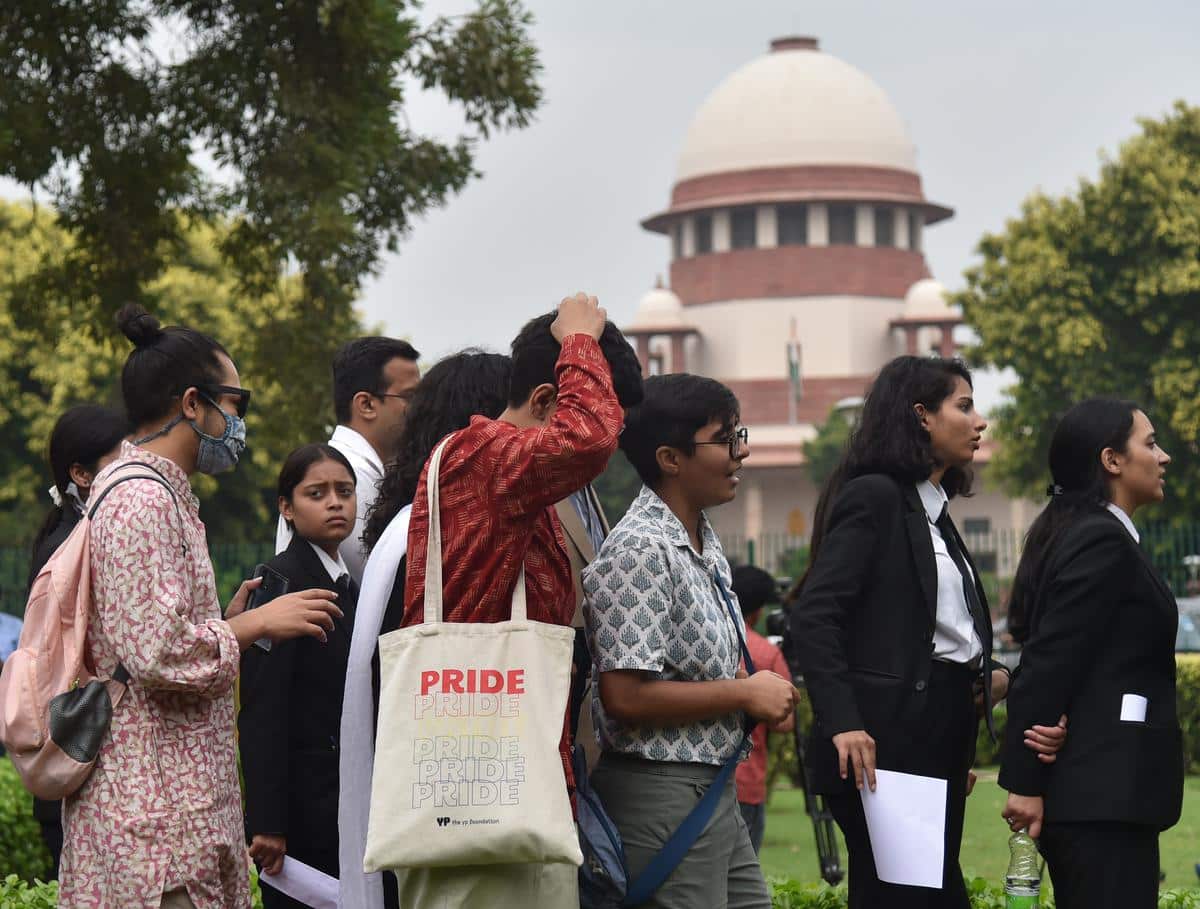Supreme Court Requests Government’s Input on Sexuality Issues

The Supreme Court of India has acknowledged the pressing issue of sexually explicit content on over-the-top (OTT) and social media platforms, seeking responses from the government and other stakeholders regarding a petition for a ban on such material. A bench comprising Justices B R Gavai and Augustine George Masih emphasized that it is primarily the responsibility of the legislature or executive to address this concern. Solicitor General Tushar Mehta assured the court that the government would approach the matter collaboratively, aiming to balance freedom of speech with necessary regulations.
Government’s Stance on Content Regulation
During the proceedings, Solicitor General Tushar Mehta represented the Centre, stating that the government does not view this as adversarial litigation. He expressed the need for a balanced approach that respects freedom of speech while adhering to the restrictions outlined in Article 19(2) of the Constitution. Mehta highlighted that while some regulations are already in place, additional measures are being considered to tackle the issue of obscene and perverse content. He pointed out that certain programs contain material that is not only vulgar but also inappropriate for general audiences, particularly children, who are increasingly exposed to such content.
Justice Gavai echoed these concerns, urging the government to take action. He noted that the current landscape allows for the unrestricted display of explicit material, which raises significant concerns about its impact on young viewers. The bench acknowledged that children are adept at using technology, which can lead them to inappropriate websites. The justices underscored the importance of ensuring that children are protected from harmful content.
Judicial Boundaries and Legislative Responsibilities
The Supreme Court’s bench made it clear that the issue of regulating online content falls outside its jurisdiction, emphasizing that it is the role of the legislature or executive to implement necessary measures. Justice Gavai referenced recent criticisms of the judiciary, indicating that the court is cautious about overstepping its boundaries. He reiterated that the responsibility to legislate on this matter lies with elected representatives, not the judiciary.
The court’s comments come in the wake of remarks from Vice President Jagdeep Dhankhar and BJP MP Nishikant Dubey, who have criticized the judiciary’s involvement in legislative matters. The justices expressed their intention to ensure that the concerns raised in the petition are addressed appropriately, while also recognizing the need for social responsibility among content providers.
Concerns Raised by Petitioners
The petition, filed by five individuals, calls for the establishment of guidelines to create an authority responsible for prohibiting the online dissemination of obscene content. The petitioners argue that social media platforms and OTT services are currently sharing pornographic material without adequate filters, posing risks to youth and children. They assert that the unregulated spread of such content could lead to detrimental effects on societal values, mental health, and public safety.
The petitioners have previously approached relevant authorities for action but claim their concerns have gone unaddressed. They are urging the Supreme Court to mandate the government to restrict access to social media and OTT platforms until a robust mechanism is in place to prevent children from accessing explicit content. They propose the formation of a committee led by a retired Supreme Court judge and experts to oversee content certification, similar to the Central Board of Film Certification.
Future Steps and Recommendations
In light of the serious concerns raised, the Supreme Court has indicated that it may issue notices to the Centre and relevant OTT and social media platforms for their responses. The petitioners have also suggested involving psychologists and experts to conduct a nationwide study on the impact of sexually explicit content on individuals. This comprehensive approach aims to address the potential harms associated with such material and ensure that appropriate measures are taken to protect vulnerable populations.
The court’s acknowledgment of this issue reflects a growing recognition of the need for regulation in the digital space, particularly concerning content that can adversely affect the youth. As discussions continue, the outcome of this case may set important precedents for how India approaches online content regulation in the future.
Observer Voice is the one stop site for National, International news, Sports, Editor’s Choice, Art/culture contents, Quotes and much more. We also cover historical contents. Historical contents includes World History, Indian History, and what happened today. The website also covers Entertainment across the India and World.
Follow Us on Twitter, Instagram, Facebook, & LinkedIn

